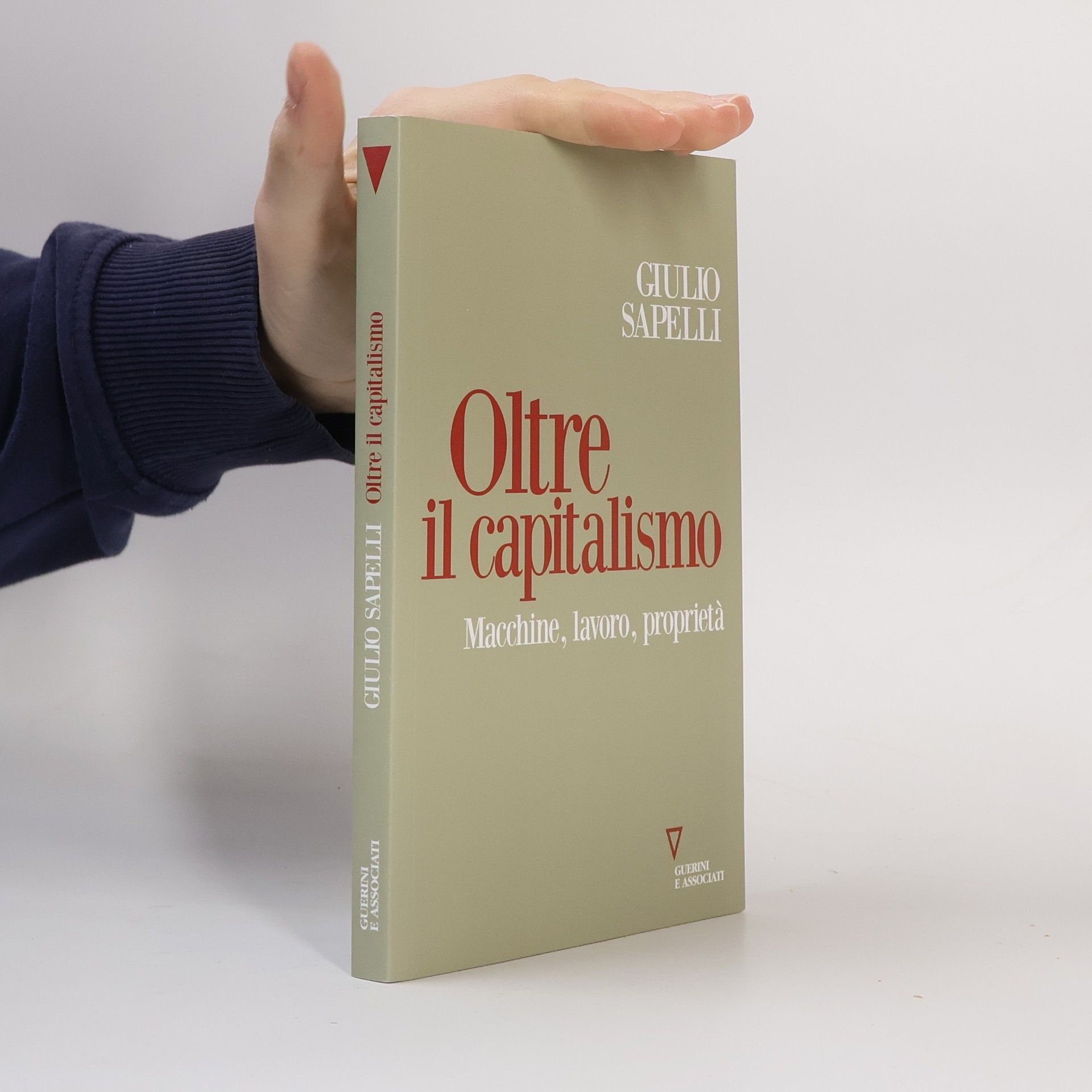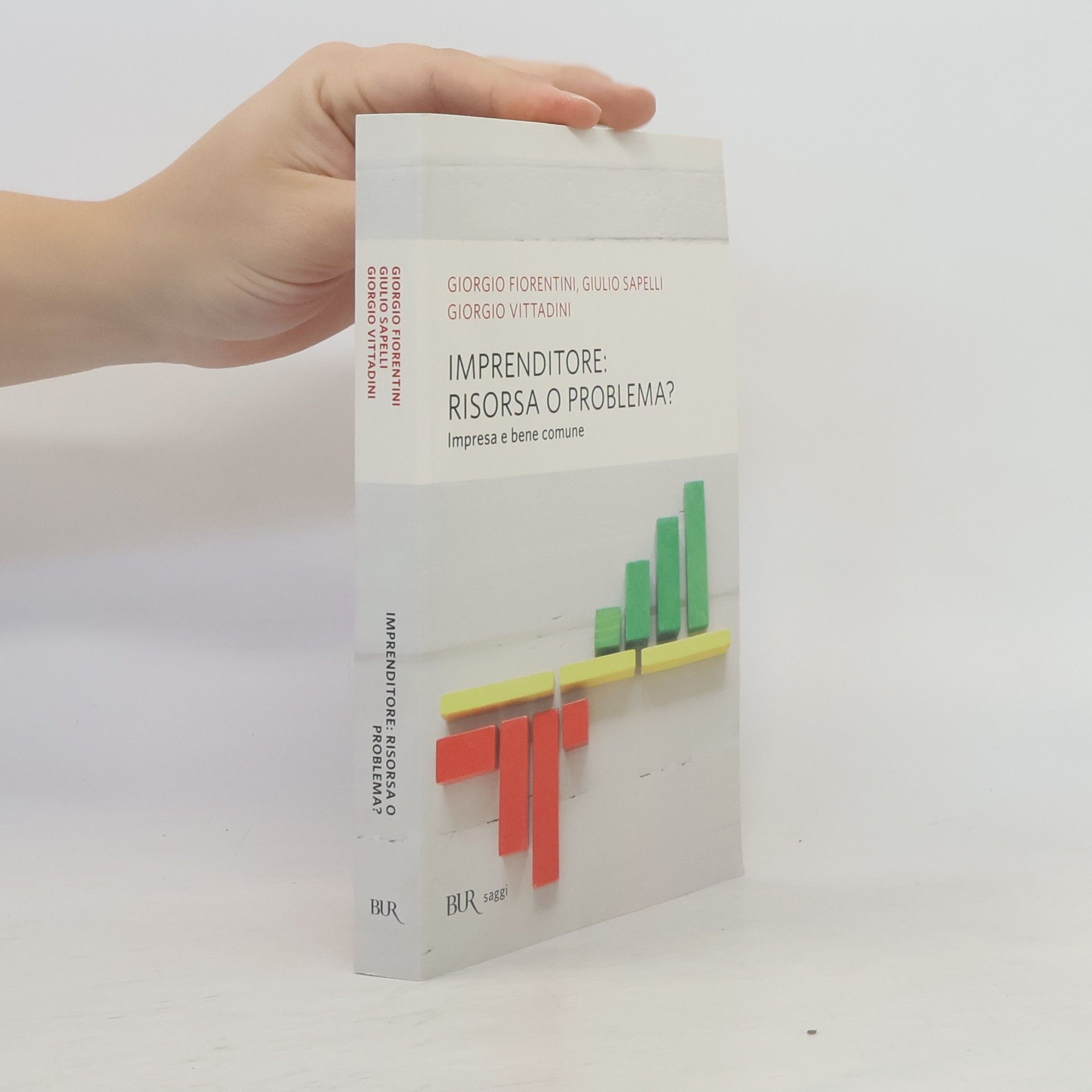The book examines the financialisation of the economy and its impact on technological transformation within a globalised context. It highlights the decline of capitalist property, leading to a resurgence of pre-capitalist social issues like slavery, alongside the adverse effects of deflation and the erosion of welfare systems. Despite these challenges, the author posits a hopeful future through the emergence of community-based socialism, emphasizing diverse ownership models, cooperative living, and sustainable property practices as potential solutions.
Giulio Sapelli Libros
Profesor de Historia Económica en la Universidad de Milán y columnista del Corriere della Sera, es una de las voces más independientes, originales y poco convencionales entre los economistas italianos. Como intelectual polifacético, combina historia, filosofía, sociología y cultura humanista en un estilo muy personal y penetrante. Su obra se caracteriza por un profundo examen de los fenómenos económicos, enmarcado en un contexto sociocultural más amplio. Los lectores apreciarán su habilidad para conectar campos aparentemente dispares y presentar ideas complejas de una manera accesible y estimulante.





States, Markets and Wars in Global History
Economic and Political Developments Between the Advent of Globalization and the COVID-19 Pandemic
- 312 páginas
- 11 horas de lectura
Focusing on the economic and political shifts from globalization to the COVID-19 pandemic, the book examines the resulting reconfiguration of the global political landscape. It highlights the decline of European diplomacy and the rise of populism, reflecting a crisis of neoliberalism. The author proposes a new international order through cooperation among the US, Russia, and China, emphasizing the need for regulated finance and community engagement post-pandemic. This work is valuable for scholars in international economics and political economy.
Saggi: Imprenditore: risorsa o problema? Impresa e bene comune
- 333 páginas
- 12 horas de lectura
Come è cambiata l’attività imprenditoriale negli ultimi decenni in Italia? Qual è il ruolo dell’impresa nella società? Come si mettono in rapporto tradizione e innovazione? Che significato ha per un imprenditore il bene comune? Raccogliendo le riflessioni di alcuni tra i principali imprenditori e manager del nostro Paese – da Oscar Farinetti a Pasquale Natuzzi, da Roberto Snaidero a Pietro Modiano a Giorgio Squinzi –, questo volume riflette sulle profonde trasformazioni che sta vivendo l’industria italiana e indica le possibili strategie per dare vita a una ripresa economica e culturale: considerando il ruolo spartiacque della crisi, gli autori approfondiscono i nuovi modi di fare impresa che stanno sorgendo nel Paese e mostrano da dove ripartire per costruire un’economia che metta al centro il bene delle persone e lo sviluppo della società.
Quali sono le cause della crisi economica mondiale? È iniziata dall’industria o dalla finanza? Quanto hanno influito i comportamenti irresponsabili delle oligarchie manageriali? È corretto richiedere una regolazione esterna per imprese e mercati che hanno fallito? Si sta riaffacciando un capitalismo di Stato? Il ruolo degli USA nell’economia globale è davvero esaurito? L’economista Giulio Sapelli affronta queste domande, analizzando cause e effetti a lungo termine, avvertendo contro soluzioni neoprotezioniste e sottolineando la necessità di una nuova etica della competizione. Negli ultimi vent’anni, il trasferimento di ricchezza dal profitto alla rendita finanziaria ha distorto gravemente l’economia globale. È fondamentale riequilibrare risparmio e investimento. Solo il rischio d’impresa, fonte di innovazione in un mercato globale autoregolato, può rivitalizzare un’economia attualmente vulnerabile a una concezione distorta del rischio. Questa deriva è alimentata dalla speculazione di chi ha manovrato capitali per aumentare il valore delle proprie stock options, causando rialzi borsistici irrazionali e vendendo debiti attraverso veicoli finanziari opachi. La lotta alla corruzione e un nuovo modello di rischio sono oggi inseparabili.
Sguardi sul mondo attuale: Oltre il capitalismo. Macchine, lavoro, proprietà
- 181 páginas
- 7 horas de lectura